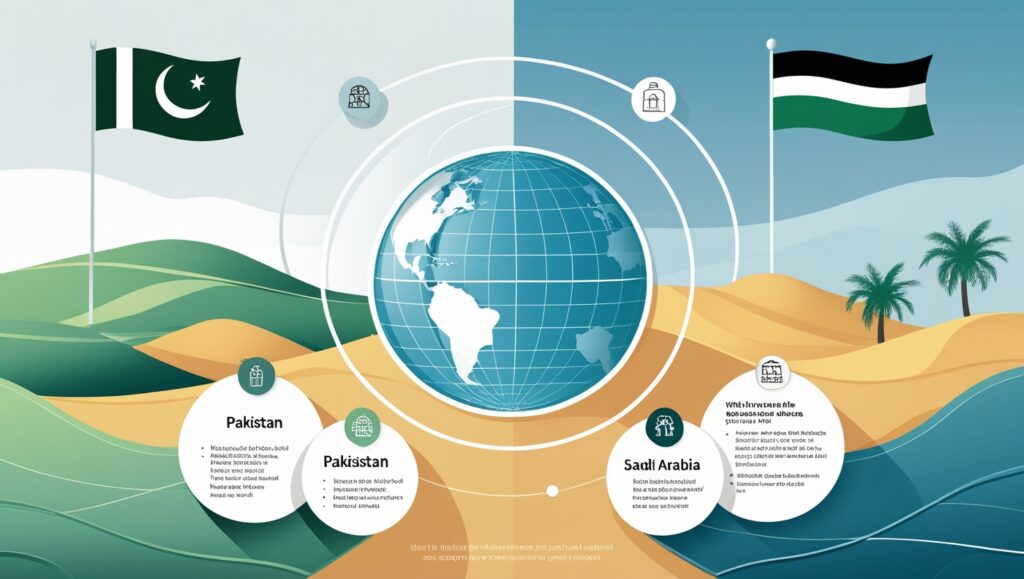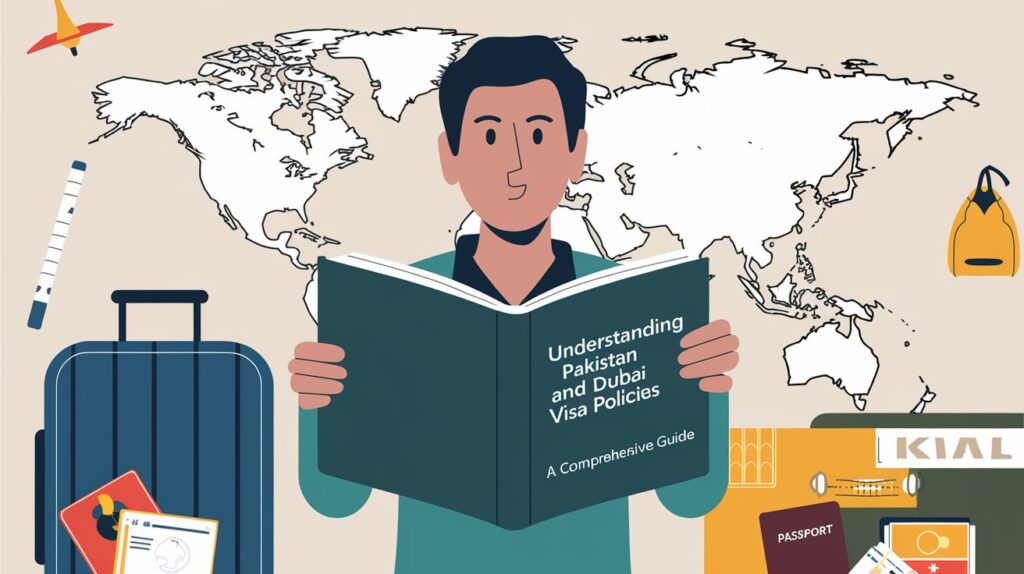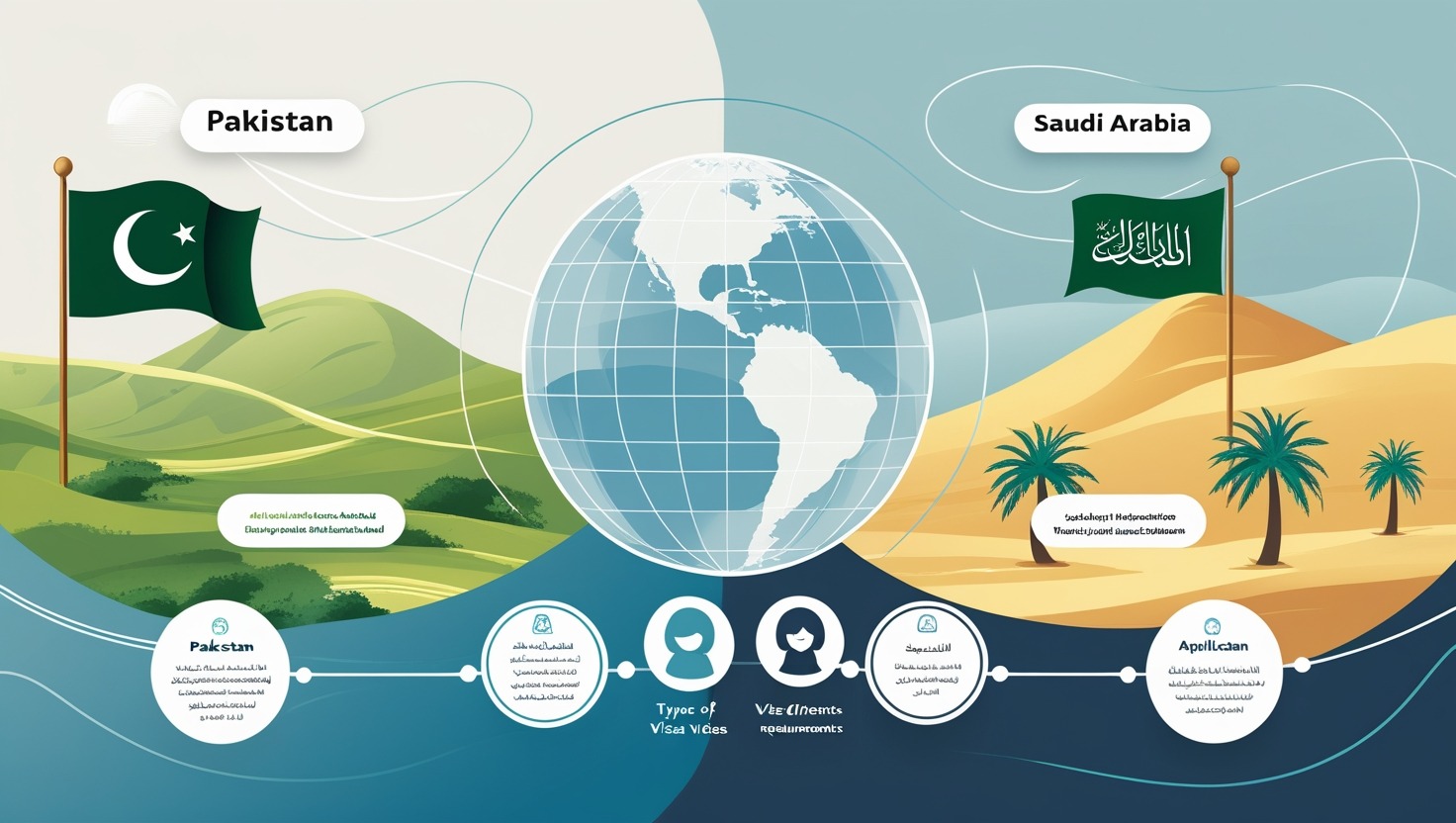
When it comes to traveling between Pakistan and Saudi Arabia, understanding the visa policies is crucial. Both nations share a deep-rooted history of cultural, religious, and economic ties. However, navigating the visa requirements can often seem daunting. In this article, we aim to provide a detailed, well-researched, and engaging overview of the visa policies between these two countries, interspersed with relatable anecdotes to make the content both informative and enjoyable to read.
Historical Context of Bilateral Relations
Pakistan and Saudi Arabia have enjoyed close ties since the former’s independence in 1947. Saudi Arabia is home to over two million Pakistani expatriates, who contribute significantly to the Kingdom’s economy and send substantial remittances back to Pakistan. On the other hand, Saudi Arabia’s investments in Pakistan span various sectors, including energy, infrastructure, and education.
This mutual dependence has influenced visa policies over the years, leading to various agreements aimed at facilitating smoother travel between the two nations. Whether you are a pilgrim, a worker, or a tourist, understanding these policies is key to ensuring a hassle-free experience.
Types of Saudi Arabia Visas for Pakistanis
Saudi Arabia offers several types of visas for Pakistani citizens, each tailored to specific purposes:
- Hajj and Umrah Visa: Saudi Arabia is the heartland of Islam, hosting millions of Muslims every year for Hajj and Umrah. Pakistani pilgrims are required to apply for a special visa to perform these religious obligations. The process is straightforward, often facilitated by authorized travel agencies.Anecdote: I remember my uncle’s first Hajj trip in 2010. The entire family gathered to see him off at the airport. He shared how he felt both anxious and exhilarated as he navigated the visa process, a journey he described as life-changing.
- Employment Visa: Many Pakistanis travel to Saudi Arabia for work. To obtain an employment visa, applicants need a job offer from a Saudi employer, who acts as a sponsor. Required documents include a valid passport, a medical certificate, and an attested work contract.
- Family Visit Visa: This visa allows Pakistani expatriates in Saudi Arabia to invite family members for short visits. The process usually involves the Saudi-based sponsor initiating the application through the Ministry of Foreign Affairs.
- Business Visa: Entrepreneurs and businesspersons can apply for this visa to explore opportunities in Saudi Arabia. Supporting documents include an invitation letter from a Saudi company and a business registration certificate.
- Tourist Visa: Saudi Arabia has recently opened its doors to tourism, making tourist visas available for Pakistani citizens. The application process is relatively simple and can often be completed online.
Pakistan Visa Policies for Saudis

Similarly, Pakistan offers various visa options for Saudi citizens:
- Tourist Visa: Saudi nationals can apply for a tourist visa to explore Pakistan’s breathtaking landscapes, including the Hunza Valley and Swat. The government has streamlined the e-visa process, making it easier than ever for tourists.
- Business Visa: Saudi entrepreneurs interested in investing in Pakistan can apply for a business visa. This requires a recommendation letter from the Chambers of Commerce in Saudi Arabia and an invitation from a Pakistani business entity.
- Family Visa: This visa is intended for Saudi citizens with family ties in Pakistan. The process is straightforward, involving basic documentation and sponsorship by a Pakistani relative.
- Religious Visa: Pakistan is home to several significant Islamic heritage sites, including the Badshahi Mosque and Data Darbar. Saudi citizens interested in visiting these sites can apply for a religious visa.
Recent Changes and Updates in Visa Policies
Both countries have introduced various updates to their visa policies in recent years:
- E-Visa Systems: Pakistan has launched an e-visa system to simplify the application process for Saudi citizens. Similarly, Saudi Arabia’s online platforms, such as Absher, make it easier for Pakistanis to apply for visas.
- COVID-19 Protocols: During the pandemic, both countries imposed restrictions on travel. However, with the situation stabilizing, these restrictions have largely been lifted. It’s essential to check the latest COVID-19 guidelines before planning your trip.
- Visa Fee Reductions: In a bid to promote tourism and strengthen bilateral ties, both nations have reduced visa fees for certain categories.
Challenges in the Visa Process
While both countries have made significant strides in streamlining visa procedures, challenges remain:
- Lengthy Processing Times: Despite advancements, some applicants face delays due to bureaucratic hurdles.
- Language Barriers: Many applicants struggle with completing forms in Arabic or English, highlighting the need for better support systems.
- Documentation Issues: Missing or incorrectly attested documents can lead to visa rejections, a common frustration for applicants.
Tip: Always double-check your documents and seek professional assistance if needed to avoid unnecessary delays.
Tips for a Smooth Visa Application
- Start Early: Begin the visa application process well in advance of your planned travel date.
- Organize Your Documents: Keep all required documents, including your passport, photographs, and supporting letters, ready and neatly organized.
- Use Authorized Agents: For Hajj, Umrah, and employment visas, rely on authorized agents to avoid scams.
- Stay Updated: Regularly check official websites for any updates or changes in visa policies.
Personal Story: My Experience with the Saudi Visa Process

Last year, I had the opportunity to travel to Saudi Arabia for Umrah. The process, though initially overwhelming, turned out to be smoother than expected, thanks to the guidance of a reliable travel agent. I’ll never forget the moment I stepped into Masjid al-Harama surreal experience that made all the paperwork worth it.
Conclusion
Understanding the visa policies of Pakistan and Saudi Arabia is essential for anyone planning to travel between these two nations. While the processes can seem complex, proper preparation and staying informed can make the experience much more manageable. Whether you’re embarking on a spiritual journey, seeking job opportunities, or exploring new horizons, both countries offer immense possibilities.
With growing technological advancements and diplomatic efforts, the future of travel between Pakistan and Saudi Arabia looks promising. By sharing knowledge and experiences, we can help make this journey more accessible and enriching for everyone.
